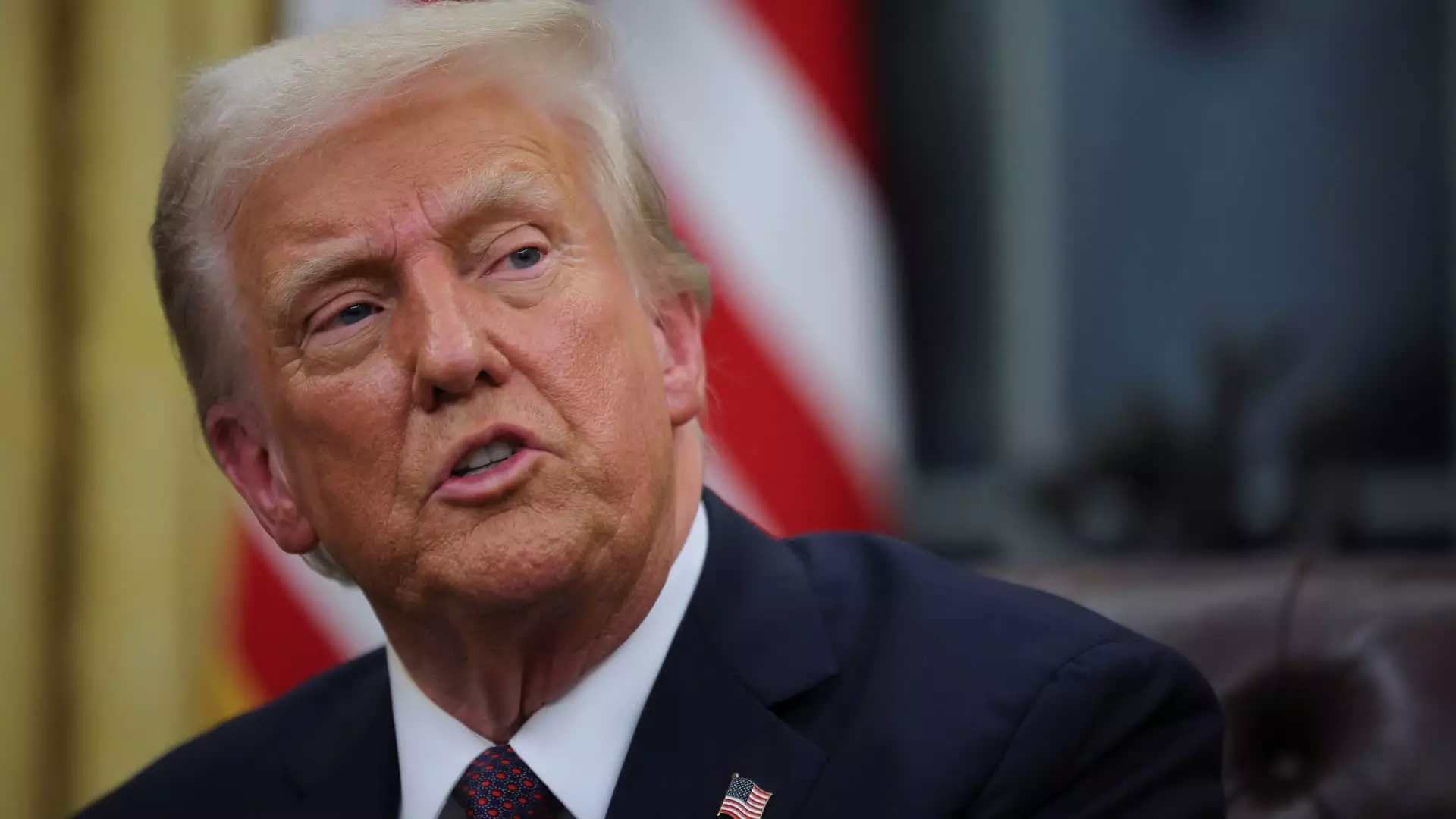In an unprecedented move, a federal judge intervened in a high-stakes order issued by the Trump administration that aimed to suspend the distribution of existing federal grants and loans pending further review. Judge Loren AliKhan’s administrative stay, announced during a Zoom hearing, disrupted an order that was set to take effect imminently. This ruling has sparked significant debates concerning the balance of power between the executive branch and federal courts, as well as the broader ramifications of such financial freezes on crucial government programs.
The situation peaked when Judge AliKhan’s stay was established just moments before the administration’s directive would have impacted federal financial assistance worth potentially trillions of dollars. This judicial pause does not merely constitute a procedural delay; it represents a significant legal challenge lodged by a coalition of 22 states, along with the District of Columbia. They swiftly took action in Rhode Island’s federal court, asserting that the order issued by the Office of Management and Budget (OMB) was not only ill-conceived but also illegal.
The crux of the matter lies within the complexities introduced by the Trump administration’s motivations to eliminate purported “woke ideology” from federal funding channels. The OMB had essentially demanded a comprehensive review process of grants and loans, aimed at ensuring compliance with this new thrust. This decision raises essential queries regarding governmental discretion versus the rights of states and local entities that heavily rely on federal funds for their operations.
As highlighted during the proceedings, the OMB’s abrupt memo left many federal programs shrouded in uncertainty about their future funding. Experts in the nonprofit sector expressed serious concerns regarding immediate consequences should the freeze take effect, citing potential chaos in financial management and planning. Jessica Morton, an attorney representing affected plaintiffs, made a compelling case before Judge AliKhan, arguing that the lack of timely communication about the order’s implications merited a delay.
Nonprofits and small organizations, many of which operate with limited financial buffers, stand on unstable ground. Diane Yental, the CEO of the National Council of Nonprofits, voiced the profound anxieties these entities face. With many small nonprofits relying heavily on federal awards, the possibility of cash flow interruptions poses a genuine threat—leading to staff layoffs or even complete program closures.
The Broader Implications of the Legal Battle
The judicial proceedings exemplify not merely a one-off dispute over federal funding but also a pivotal moment of accountability and oversight for executive actions. The effectiveness of checks and balances within the U.S. governmental system is being put to the test. Judge AliKhan’s decision to pause the OMB order has not only granted immediate relief but also opened the door for a broader examination of the relationships between federal agencies and the communities they serve.
Moreover, this ruling might serve as a catalyst for other states and organizations contemplating their own lawsuits. As the hearing is set to reconvene soon, the legal landscape concerning executive overreach in financial overseers will likely evolve, with repercussions on economic policy and administrative transparency.
The Path Forward
As the situation unfolds, there remains a palpable tension between federal intentions and local needs. The judiciary’s involvement—specifically in cases where federal action threatens critical services—illustrates the crucial role of oversight and the protection of civil society from potential executive overreach.
The anxieties voiced by advocates for nonprofits and local organizations are not merely about funding; they reflect the ongoing struggle for citizens to maintain their access to essential government resources. Ultimately, the outcome of this judicial review could reshape the approaches taken toward federal funding, establish clearer communication protocols, and influence the broader governance landscape leading into future administrations.


Leave a Reply